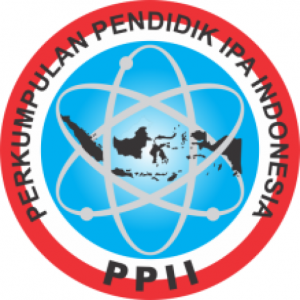Literature Review: The Relationship Between Procrastination and Academic Stress
Authors
Muhammad Haikal , Muhammad Rafly Adrian Sugiono , Anis Aura Azzahra , Naufal Revaldy FauzanDOI:
10.29303/jbt.v25i4a.10718Published:
2025-11-24Issue:
Vol. 25 No. 4a (2025): Special IssueKeywords:
Academic procrastination, academic stress, coping strategies, university students, time management.Articles
Downloads
How to Cite
Downloads
Metrics
Abstract
Academic procrastination and academic stress represent two interrelated issues frequently encountered by university students and have been shown to adversely affect academic performance as well as psychological well-being. This literature review synthesizes current evidence regarding the conceptualization, contributing factors, and consequences of academic procrastination, while also examining the mechanisms through which academic stress influences procrastinatory behavior. Internal factors such as limited motivation, inadequate time-management abilities, insufficient understanding of academic tasks, and psychological and physical fatigue were identified as key determinants of procrastination. External factors, including heavy academic workloads, unclear instructions, peer influence, and inconsistent assignment deadlines, further intensify procrastinatory tendencies. Academic stress, defined as the condition in which academic demands exceed an individual's adaptive capacity, is associated with anxiety, sleep disturbances, changes in nutritional patterns, reduced concentration, and other physiological or emotional consequences. Evidence from multiple empirical studies indicates a positive and reciprocal association between academic procrastination and academic stress, suggesting that elevated stress levels increase procrastination, while procrastination, in turn, heightens stress. This reinforcing cycle underscores the need for targeted interventions. Recommended strategies include segmenting complex tasks into smaller components, reducing feelings of overload, managing perfectionistic tendencies, monitoring daily behavioral patterns, and employing self-reward systems. Overall, a comprehensive understanding of the interplay between academic stress and procrastination is essential for developing effective academic and psychological support strategies for students.
References
Akbar, M. R., & Nurhayati, N. (2022). Pengaruh mahasiswa magang terhadap keberlangsungan kinerja Kantor Walikota Medan. Jurnal Ilmu Komputer, Ekonomi dan Manajemen (JIKEM), 2(1), 404–408.
Anabillah, A. R., Febriansyah, M. R., & Atmaja, M. Z. D. (2022, May). Kemampuan manajemen waktu dalam mengatasi prokrastinasi akademik pada mahasiswa. In Seminar Nasional Psikologi dan Ilmu Humaniora (SENAPIH) (Vol. 1, No. 1, pp. 189-195).
Arlinda, N. S., Wolor, C. W., & Utari, E. D. (2025). Analisis Prokrastinasi Kerja Karyawan Pada PT G. Jurnal Ilmiah Ekonomi Dan Manajemen, 3(5), 217-224.
Astuti, E. D. K., Haryani, W., & Widayati, A. (2017). Faktor Internal Penyebab Mahasiswa Menunda Mengerjakan Tugas Akhir Pada Mahasiswa D-III Reguler. Journal of Oral Health Care, 5(2), 132-140.
Bao, X., Yu, W., Chu, Z., Gao, J., Zhou, M., & Gu, Y. (2023). Functional abdominal pain disorders in children in southern Anhui Province, China are related to academic stress rather than academic performance. BMC pediatrics, 23(1), 333.
Darwis, D. A., & Rachmawati, A. Y. (2019). Mengurangi perilaku prokrastinasi pada mahasiswa. Dalam Prosiding Seminar Nasional LP3M (Vol. 1, hlm. 165–168). LP3M.
Dimastuti, S., Gutji, N., & Rahmayanty, D. (2024). Identifikasi Faktor-Faktor Penyebab Prokrastinasi Akademik Siswa: Sebuah Studi Deskriptif Pada Siswa Kelas Viii Sekolah Menengah Pertama. Al-Isyraq: Jurnal Bimbingan, Penyuluhan, dan Konseling Islam, 7(1), 211-220.
Fiqih, A., & Ratnawati, V. (2023, August). Mengurai stres akademik mahasiswa tingkat akhir: Faktor pemicu, dampak dan strategi pengelolaan di Universitas Nusantara PGRI Kediri. In Prosiding SEMDIKJAR (Seminar Nasional Pendidikan Dan Pembelajaran) (Vol. 6, pp. 755-765).
Hayani, S., Dahlia, D., Khairani, M., & Amna, Z. (2022). Kecanduan internet dan prokrastinasi akademik pada mahasiswa. Seurune: Jurnal Psikologi Unsyiah, 5(2), 177-208.
Jayusman, I., & Shavab, O. A. K. (2020). Aktivitas belajar mahasiswa dengan menggunakan media pembelajaran learning management system (LMS) berbasis Edmodo dalam pembelajaran sejarah. Jurnal Artefak, 7(1), 13. doi.org/10.25157/ja.v7i1.3180
Kuftyak, E. V. (2022). Procrastination, stress and academic performance in students. Arpha Proceedings, 5, 965-974.
Lele, J. I., Sine, J. S., Sole, A. I. S., & Foeh, Y. (2022). Perbedaan prestasi belajar mahasiswa saat pembelajaran daring dan tatap muka ditinjau dari prokrastinasi akademik. Harati: Jurnal Pendidikan Kristen, 2(1), 1–17. https://doi.org/10.54170/harati.v2i1.81
Mahardhani, F. O., Ramadhani, A. N., Isnanti, R. M., Chasanah, T. N., & Praptomojati, A. (2020). Pelatihan strategi koping fokus emosi untuk menurunkan stres akademik pada mahasiswa. Gadjah Mada Journal of Professional Psychology (GamaJPP), 6(1), 60-75.
Mir, S., & Roy, S. (2024). Assignment Again! Investigating the Psychological Perspectives of Assignment and Assignment Deadlines among Tertiary Level Students. English Language Teaching Perspectives, 9(1-2), 117-130.
Miswanto, M. (2022). Prokrastinasi akademik mahasiswa di era kuliah online masa pandemi COVID-19. Psychocentrum Review, 4(1), 125–139. doi.org/10.26539/pcr.41789
Muhibbin, M. (2020). Urgensi Teori Hierarki Kebutuhan Maslow Dalam Mengatasi Prokrastinasi Akademik Di Kalangan Mahasiswa. Jurnal Ilmu Kependidikan, 15(2), 69-80.
Munthe, M., & Lase, F. (2022). Faktor-faktor dominan yang memengaruhi kegiatan belajar mahasiswa. Educativo: Jurnal Pendidikan, 1(1), 216–225. doi.org/10.56248/educativo.v1i1.30
Muyana, S. (2018). Prokrastinasi akademik di kalangan mahasiswa Program Studi Bimbingan dan Konseling. Jurnal Bimbingan dan Konseling, 8(1), 45–52.
Oktavia, W. K. (2019). Faktor-faktor yang memengaruhi stres akademik. Prosiding Seminar Nasional Magister Psikologi Universitas Ahmad Dahlan, 142–149.
Rabbi, M. F., & Islam, M. S. (2024). The effect of academic stress and Mental anxiety among the students of Khulna University. Edukasiana: Jurnal Inovasi Pendidikan, 3(3), 280-299. https://doi.org/10.56916/ejip.v3i3.723
Sagita, D. D., Daharnis, D., & Syahniar, S. (2017). Hubungan self efficacy, motivasi berprestasi, prokrastinasi akademik dan stres akademik mahasiswa. Jurnal Bikotetik (Bimbingan Dan Konseling: Teori Dan Praktik), 1(2), 43-52. https://doi.org/10.26740/bikotetik.v1n2.p43-52
Suhadianto, S., & Pratitis, N. (2020). Eksplorasi faktor penyebab, dampak dan strategi untuk penanganan prokrastinasi akademik pada mahasiswa. Jurnal RAP (Riset Aktual Psikologi Universitas Negeri Padang), 10(2), 204-223. 10.24036/rapun.v10i2.106672
Tasalim, R., & Cahyani, A. R. (2021). Stres akademik dan penanganannya. GUEPEDIA. ISBN 978-623-270-839-6.
Triyono, T., & Khairi, A. M. (2018). Prokrastinasi akademik siswa SMA (Dampak psikologis dan solusi pemecahannya dalam perspektif psikologi pendidikan islam). AL-QALAM: JURNAL ILMU KEPENDIDIKAN, 19(2), 57-74.
Wahyu, G. W. W., & Pradhana, R. N. (2022). Hubungan antara stres akademik dengan prokrastinasi pada mahasiswa jurusan X yang pernah menjalani pembelajaran online di masa pandemi COVID-19. Character: Jurnal Penelitian Psikologi, 9(1), 76–84. https://doi.org/10.26740/cjpp.v9i1.44715
Wicaksono, L. (2017). Prokrastinasi akademik mahasiswa. Jurnal Pembelajaran Prospektif, 2(2), 1–8. https://doi.org/10.26418/jpp.v2i2.34359
License
Copyright (c) 2025 Muhammad Haikal, Muhammad Rafly Adrian Sugiono, Anis Aura Azzahra, Naufal Revaldy Fauzan

This work is licensed under a Creative Commons Attribution 4.0 International License.

Jurnal Biologi Tropis is licensed under a Creative Commons Attribution 4.0 International License.
The copyright of the received article shall be assigned to the author as the owner of the paper. The intended copyright includes the right to publish the article in various forms (including reprints). The journal maintains the publishing rights to the published articles.
Authors are permitted to disseminate published articles by sharing the link/DOI of the article at the journal. Authors are allowed to use their articles for any legal purposes deemed necessary without written permission from the journal with an acknowledgment of initial publication to this journal.


























